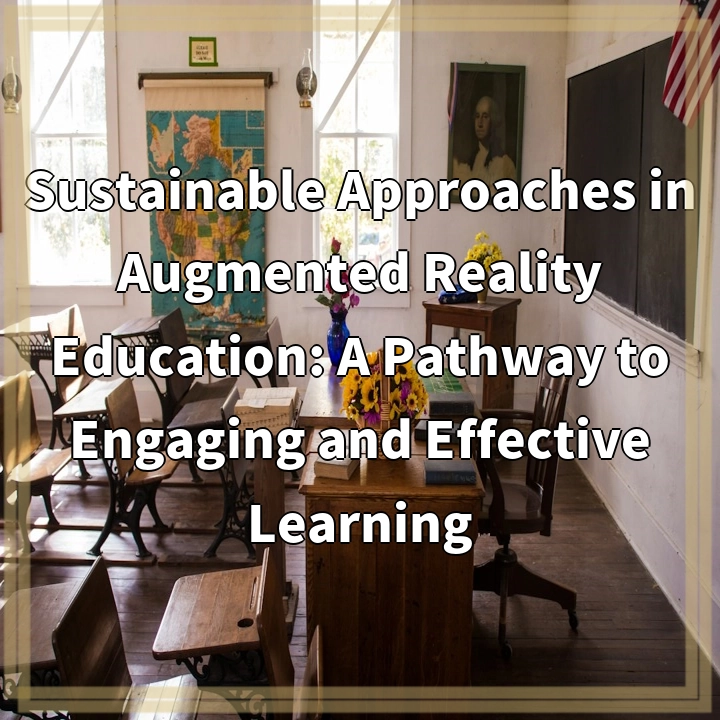
What is Sustainable Approaches in Augmented Reality Education?
Augmented Reality (AR) has rapidly gained popularity as an innovative technology in the field of education. It refers to the integration of digital information or virtual objects into the real-world environment, enhancing the learning experience for students. Sustainable approaches in AR education involve incorporating environmentally conscious principles to ensure that the use of AR technology aligns with sustainable development goals and practices. The aim is to create engaging and effective learning experiences while also minimizing the environmental impact.
Real-World Problems Associated with Sustainable Approaches in Augmented Reality Education
While the integration of AR into education has great potential, there are several real-world problems that need to be addressed to ensure sustainability:
1. Electronic Waste:
The use of AR devices, such as smartphones or headsets, can contribute to electronic waste. As technology continues to advance, there is a need to ensure proper disposal and recycling of these devices to minimize environmental harm.
2. Energy Consumption:
AR applications require energy to operate, adding to the overall energy consumption in educational settings. Energy-efficient designs and technologies should be prioritized to reduce the carbon footprint associated with AR education.
3. Access and Equity:
Ensuring access to AR technology for all students can be a challenge, particularly in low-income communities or developing regions. The cost of devices and infrastructure can create inequalities in educational opportunities.
4. Ethical Considerations:
Data privacy and ethical considerations need to be addressed when using AR in educational settings. Safeguarding student information and ensuring responsible data collection and usage are essential to protect privacy and maintain trust.
5. Pedagogical Integration:
Integrating AR into the curriculum effectively and aligning it with pedagogical goals can be a challenge. Educators need to have a clear understanding of how to leverage AR technology in a way that enhances learning outcomes and engages students.

Solutions for Sustainable Approaches in Augmented Reality Education
1. E-waste Management:
Implementing effective e-waste management strategies is crucial to minimize the environmental impact of AR devices. This includes promoting device recycling programs, encouraging manufacturers to design products with longevity and recyclability in mind, and raising awareness among users about responsible disposal methods.
2. Energy Efficiency:
Promoting energy-efficient practices in AR education can help reduce energy consumption. This can be done by optimizing AR applications to minimize power usage, utilizing renewable energy sources to power devices, and educating users about energy-saving tips when using AR technology.
3. Ensuring Access and Equity:
To address the issue of access and equity, efforts should be made to bridge the digital divide and make AR technology accessible to all students. This includes initiatives such as providing subsidized or loaned devices, creating partnerships with organizations to provide resources in underserved areas, and integrating AR into existing educational infrastructure.
4. Ethical Data Handling:
Establishing strong ethical guidelines and data protection protocols is essential when using AR technology in education. Educators and institutions should prioritize student privacy, ensure informed consent for data collection, and adopt secure storage and transmission practices to protect sensitive information.
5. Professional Development and Curriculum Integration:
Investing in professional development for educators is crucial to effectively integrate AR into the curriculum. Providing training and resources can help teachers incorporate AR in pedagogically sound ways, ensuring meaningful engagement and enhanced learning outcomes.















